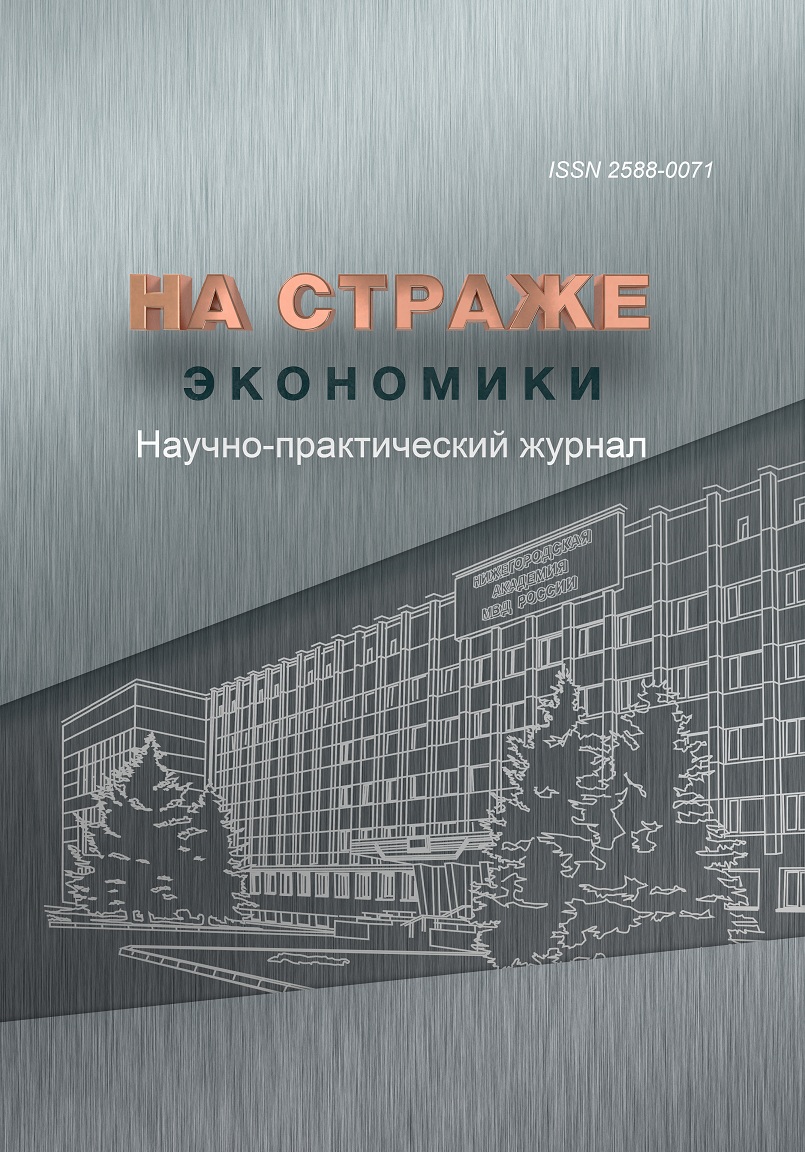Russian Federation
The article presents an analysis of goods, the demand for which is determined by crime. These benefits are divided into groups depending on the nature of the legality of their origin and scope of use. The authors reflected the mechanism of determination of these benefits with the allocation of active and passive forms of participation in it of crime (subjects of the criminal sector). The criminal ways of forming demand for the products of subjects of the criminal sector (forcible imposition, economic supply, criminal cross-marketing) are highlighted, the negative consequences of the participation of the criminal sector in the formation of demand for economic benefits are reflected, to which the authors attributed the enormous public damage from criminal activity, the destructiveness and danger of products produced in the criminal sector, as well as criminal the nature of the ways in which demand is generated. The conclusion is substantiated that the demand generated by crime for goods that contribute to security is one of its destructive externalities for the socio-economic system and the development of society, associated with the need to divert economic resources from other significant goals of social development. Among the absolutely positive benefits that crime generates, the need for the state to pursue such a social and economic policy that would minimize the determinants of crime is highlighted.
economic benefits, demand, supply, crime, determination, formation
1. Ilyin I. S. Criminological consequences of protest movements and demonstrative protest crime. Legal science, 2022, no. 1, pp. 102–105. (In Russ.)
2. Olson M. Dictatorship, Democracy and Development. Economic policy: Journal, 2010, no. 1. (In Russ.)
3. Bredikhin A. L. Criminal theory of the origin of the state: formulation of a hypothesis. Philosophy of Law, 2020, no 1 (92), pp. 174–178. (In Russ.)
4. Romashov R. A. Crime as a factor of statehood. Bulletin of the Samara Law Institute, 2012, no. 1 (6), pp. 7–16. (In Russ.)
5. Cassel D., Cichy U. Explaining the growing shadow economy in East and West: A comparative system approach. Comparative Economic Studies, vol. 28, pp. 20–41. (In Russ.)
6. Latov Yu. V. Social functions of the shadow economy in the institutional development. Director of Marketing and Sales, 2012, no. 5, pp. 21–30. (In Russ.)
7. Kosals L.Ya. Shadow economy as a feature of Russian capitalism. Questions of economics, 1998, no. 10. (In Russ.)
8. Smirnov A. I., Rogozinsky E. V. The functions of the shadow economy in the socio-economic system. Economic sciences, 2008, no. 41, pp. 133–138. (In Russ.)
9. Lizina O. M. The impact of shadow economic activity on the quality and pace of economic growth. Bulletin of Cherepovets State University, 2013, no. 3-2 (50), pp. 59–63. (In Russ.)
10. Durkheim E. On the division of social labor. A study on the organization of higher societies. Odessa, 1900. 345 p. (In Russ.)
11. Markov M. V. “The Fable of bees” by Mandeville and its perception in economics of the XIII–XX centuries. Bulletin of Saint Petersburg University. Economy, 2003, no. 1 (5), pp. 138–143. (In Russ.)
12. Mandeville B. The Fable of Bees-early modern texts. Texts of the early modern period, 1792. URL: https://www.earlymoderntexts.com/assets/pdfs/mandeville1732_1.pdf (accessed 02.02.2024). (In Russ.)
13. Grachev A. V., Puzyrevsky L. S., Babkin A. V. Shadow economy as a tool for ensuring economic security of economic entities. Scientific and technical Bulletin of Saint Petersburg State Polytechnic University. Economic sciences, 2011, no. 3 (125), pp. 214–218. (In Russ.)
14. Sobol I. A., Grachev A. V. Subjects of the criminal economy as providers of state and business security services. Bulletin of the Moscow University of the Ministry of Internal Affairs of Russia, 2011, no. 11, pp. 30–35. (In Russ.)
15. Romashov R. A. The state and crime: problems of correlation of concepts and mutual influence of systems. Actual problems of criminal law, criminology, penal enforcement law: Interuniversity collection of scientific papers / under the gen. ed. by A. G. Bezverkhov. Samara: Samara State University Publ., 2012. Pp. 33–50. (In Russ.)
16. Materials of the official website of the Federal Penitentiary Service of the Russian Federation. URL: https://fsin.gov.ru/budget/dohod.php (accessed 02.02.2024). (In Russ.)
17. Volkov V. Power entrepreneurship. European University in St. Petersburg, Faculty of Political Sciences and Sociology. Saint Petersburg, Moscow: Limited Liability Company Summer Garden Publ., 2002. 282 p. (In Russ.)










